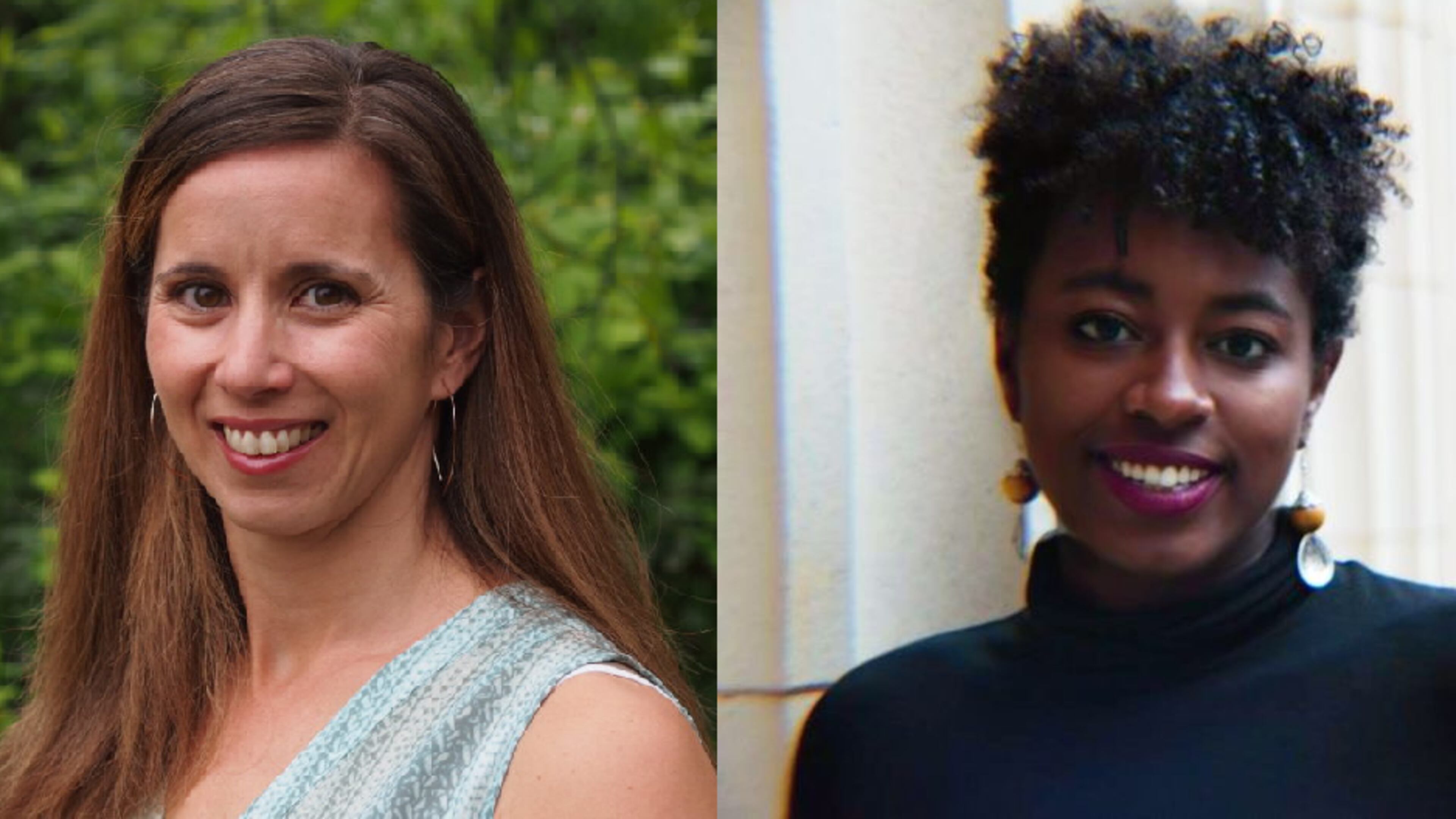Athens school board race pits UGA student against university lecturer

The last time Imani Scott-Blackwell ran for office, it didn’t end the way she hoped.
She was running for senior class president at Peachtree Ridge High School in Suwanee, well positioned after years of involvement in student government. Then, right before the election, she was suspended from school.
READ | Getting on ballot first challenge for metro Atlanta independents
Some students had been caught with marijuana-laced baked goods and told administrators that Scott-Blackwell had provided them. Scott-Blackwell denied it but was punished anyway.
She was given the choice of attending an alternative high school or finishing her degree online; returning to Peachtree Ridge was not an option. She chose the online classes. Her opponent won the senior class presidency by default.
It was through that experience that the African-American honors student with four years in student government felt thrust into the school-to-prison pipeline, the concept that disproportionately harsh punishment of low-income students and students of color pushes them toward future incarceration. She was determined that would not be her fate.
Now a semester away from graduating from the University of Georgia, Scott-Blackwell wants to prevent that from happening to students in Athens-Clarke County schools. She is running for the 5th District seat on the Board of Education, facing off against a fellow member of the UGA community: psychology lecturer Kara Dyckman.
Dyckman’s academic career has focused on cognitive psychology, “the study of how people think,” she said. As a member of the local school governance team for Chase Street Elementary School, which her two sons attend, she began applying her researcher’s mind to analyzing what strategies could be beneficial to students.
Voters will choose Tuesday between Dyckman, the involved mom, and Scott-Blackwell, the young activist.
Scott-Blackwell wasn’t sure what direction she wanted to take when she arrived in Athens in 2014.
“For the first two years, I was kind of bumbling around trying to find myself,” Scott-Blackwell said.
Her perception of the educational system had been changed after her senior year of high school; she felt disillusioned. Then, in 2016, she saw a presentation about the school-to-prison pipeline, put on by the Athens Anti-Discrimination Movement, a local social justice activist group. She saw parallels to her own experience and joined the group.
“All of these things that I thought were paranoia about my own experience actually legitimized my experience and also redirected me to a place where I could work with people who are actively trying to make an impact,” Scott-Blackwell said. “At that time it was just giving me an outlet to do community work — that’s something my parents always instilled in me as valuable. To have something in Athens to throw myself into was really helpful, especially in reshaping my identity at that point.”
As she became more active in various social justice causes, Scott-Blackwell still remained focused on education. She started serving in a leadership role in the Athens Anti-Discrimination Movement’s student chapter, which encourages students to become engaged with the Board of Education and eventually run for seats themselves. When she realized her home was in a school board district with an open seat, she decided to run.
Scott-Blackwell has made addressing racial inequity the keystone of her platform. In the issues facing the 23 schools in the Athens-Clarke County system, Scott-Blackwell believes the racial aspects cannot be separated. The county’s 38 percent poverty rate is one of those issues, she said.
“A lot of people don’t want to engage with the racial aspects of poverty, but as a lower class person of color, you can never separate the racial aspect,” Scott-Blackwell said. “Part of the danger of progressivism is that people can see these (racial) issues, but they have a level of apprehension about speaking about it.”
Dyckman, who is white, also believes there is racial inequity in Athens-Clarke County schools, citing disparities in standardized test performance between white students and black and Latino students. Both candidates put an emphasis on addressing the effects of poverty on students and pivot school discipline toward restorative justice — a practice that incorporates dialogue and conflict resolution instead of punishment.
The candidates’ approaches toward the problems they both recognize may be the most different things about them. Dyckman looks at issues with an academic’s eye; her platform is peppered with parenthetical citations and contains a bibliography. Scott-Blackwell embodies her role as an activist, proposing cooperation between the school board, nonprofit organizations, social justice groups and UGA. Dyckman doesn’t like the campaign aspect of seeking the school board seat and says she wouldn’t run for any other political office. For Scott-Blackwell, politics are entwined with the issues she wants to address as a school board member.
“Young people, especially young people that look like me, we deserve to have the chance to have any role in the decision-making process,” Scott-Blackwell said. “When you don’t have a seat at the table you have to pull up your own chair, and I am ready to pull up that chair.”
Like AJC on Facebook | Follow us on Twitter


